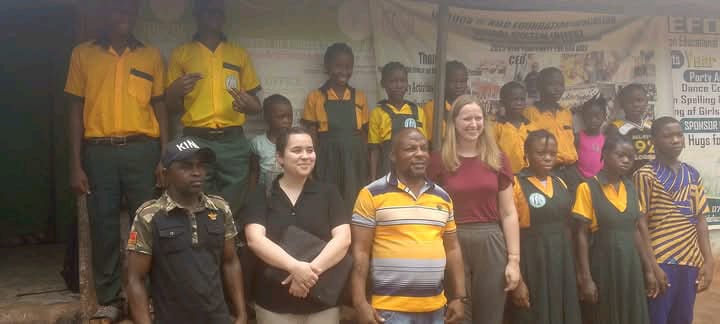By Elijah Easter Kaykay
(Buchanan)
Two international researchers from the Stimson Center in Washington, D.C., concluded a powerful day of engagement in Buchanan, Liberia, where they listened to raw, heartfelt testimonies from former child soldiers and ex-combatants.
Hosted by the Initiative for the Development of Former Child Soldiers (IDEFOCS), the visit formed part of a broader fact-finding mission across post-conflict nations to assess the lingering effects of war and the gaps left behind by United Nations peacekeeping efforts.
Julie Gregory and Nathalie Dramlett, the researchers, are focused on evaluating civilian protection and human security in the aftermath of peacekeeping withdrawals. In Liberia, where the United Nations Mission in Liberia (UNMIL) officially ended in 2018, their work underscores a difficult truth: the departure of peacekeepers does not automatically usher in lasting peace or comprehensive healing.
Held in Buchanan City, the sessions were far from typical research interviews. They were intimate, emotionally charged conversations where participants spoke candidly about their struggles in reintegrating into society. Former combatants described ongoing trauma, educational barriers, and a sense of being forgotten in a country trying to move forward.
Also present were students from the Rilo Foundation Educational School System (RIFES), many of whom are children of ex-combatants – a stark reminder that the consequences of conflict ripple through generations.
A major point of frustration was the Disarmament, Demobilization, Rehabilitation, and Reintegration (DDRR) program. While many acknowledged its intent, several participants criticized its execution, particularly its failure to provide sustained educational opportunities and child protection services. “Reintegration isn’t a one-time fix,” one participant noted. “It’s a lifelong journey.”
Julie Gregory affirmed that these testimonies will be central to a forthcoming report aimed at the United Nations permanent missions. The report will critically examine both Liberia’s DDRR strategy and the UN’s role in protecting children during its peacekeeping operations. According to Gregory, the goal is to ensure that lessons from Liberia guide future interventions in other conflict-affected regions.
IDEFOCS founder and CEO, Mr. Morris Matadi, expressed gratitude for the researchers’ visit but stressed the urgency of continued international support. “We don’t just need attention – we need action,” he said. His appeal centered on initiatives like RIFES, which provides free, quality education to hundreds of children affected by war, substance abuse, and poverty. “Education is our most powerful tool to break the cycle,” Matadi said. “These children deserve more than survival. They deserve a future.”
As Buchanan’s streets quietly echo the resilience of a nation recovering from war, this visit serves as a sobering reminder that peace is more than the absence of conflict. It’s about building systems that protect the most vulnerable – and listening to voices that have long gone unheard.


